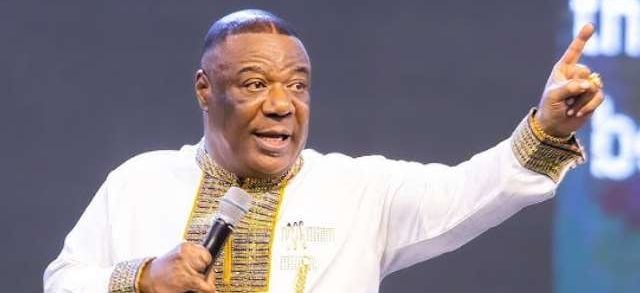Archbishop Duncan Williams’s poignant illustration of Ghana’s political paralysis serves as a potent symbol of a nation grappling with the debilitating effects of partisan division. His metaphor, physically demonstrating the impossibility of movement when one leg works against the other, encapsulates the core issue: the entrenched adversarial nature of Ghanaian politics hinders progress and stifles national development. The Archbishop argues that this deeply ingrained political culture, where opposition parties reflexively oppose government initiatives regardless of merit, creates a toxic environment of negativity and stagnation. This automatic rejection of policies simply based on their origin, rather than their potential benefit to the nation, prevents Ghana from realizing its full potential. The Archbishop’s concern stems from the observation that this political impasse transcends specific administrations and represents a systemic flaw in the country’s governance structure.
The Archbishop’s critique extends beyond mere political disagreement, highlighting a fundamental breakdown in constructive engagement. He laments the absence of a collaborative spirit, where political actors prioritize national interests over party loyalty. This zero-sum approach to politics, where one party’s gain is automatically perceived as another’s loss, undermines the possibility of consensus-building and collective action. The consequence, according to the Archbishop, is a nation perpetually trapped in a cycle of political bickering and missed opportunities. The inability to find common ground on critical issues, regardless of which party holds power, impedes the implementation of beneficial policies and perpetuates a climate of political instability. This, in turn, discourages long-term investment, both domestic and foreign, further hindering economic growth and social progress.
The Archbishop’s diagnosis of Ghana’s political landscape underscores the urgency of fostering a more inclusive and collaborative political culture. He argues for a paradigm shift, where political parties recognize their shared responsibility for the nation’s well-being and prioritize constructive dialogue over destructive opposition. This calls for a move away from the winner-takes-all mentality, which fuels political polarization and encourages an us-versus-them dynamic. Instead, the Archbishop advocates for a more nuanced approach, where opposition parties engage critically with government policies, offering constructive criticism and alternative solutions, while also acknowledging and supporting initiatives that serve the national interest. Such a shift requires a fundamental change in the mindset of political actors, prioritizing the collective good over partisan advantage.
The Archbishop’s call for political maturity and cooperation resonates with the growing frustration among Ghanaians who witness the detrimental impact of this partisan gridlock on their daily lives. The lack of progress on critical issues such as infrastructure development, education, and healthcare is a direct consequence of this political dysfunction. Citizens are increasingly demanding accountability and urging their political leaders to transcend partisan divides and work together to address the nation’s challenges. The Archbishop’s message serves as a timely reminder that political leadership should be about service to the nation, not about wielding power for partisan gain. The true measure of political success, he suggests, lies in the ability to unite the country and work collaboratively towards a shared vision of prosperity and progress.
Beyond the immediate political implications, the Archbishop’s critique raises broader questions about the nature of democracy and the role of political parties in a healthy society. A functioning democracy requires a delicate balance between robust debate and constructive collaboration. While vigorous opposition is essential for holding the government accountable and ensuring transparency, it should not descend into obstructionism and political paralysis. Political parties, as representatives of the people, have a duty to engage in good-faith negotiations and find common ground on issues of national importance. This requires a level of political maturity and a commitment to putting the interests of the nation above party politics. The Archbishop’s message serves as a powerful reminder of the fundamental principles of democratic governance and the importance of fostering a political culture that prioritizes the well-being of the citizenry.
The Archbishop’s metaphor of the immobilized leg serves as a stark visual representation of the self-inflicted wounds that Ghana endures as a result of its polarized political landscape. His call for a more collaborative and less adversarial approach to politics is not merely a plea for political expediency but a fundamental call for national unity and progress. The future of Ghana, he suggests, hinges on the ability of its political leaders to transcend partisan divides and work together to build a more prosperous and equitable nation. This requires a fundamental shift in mindset, where political actors prioritize the collective good over individual or party interests. The Archbishop’s message is a timely and crucial reminder that the true strength of a nation lies not in its political divisions, but in its capacity for unity and collective action.


